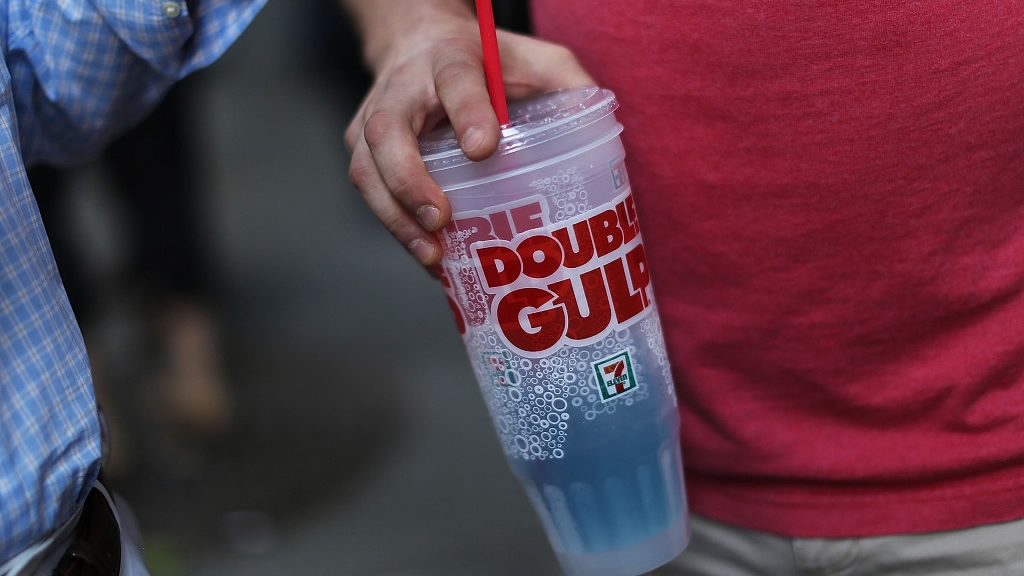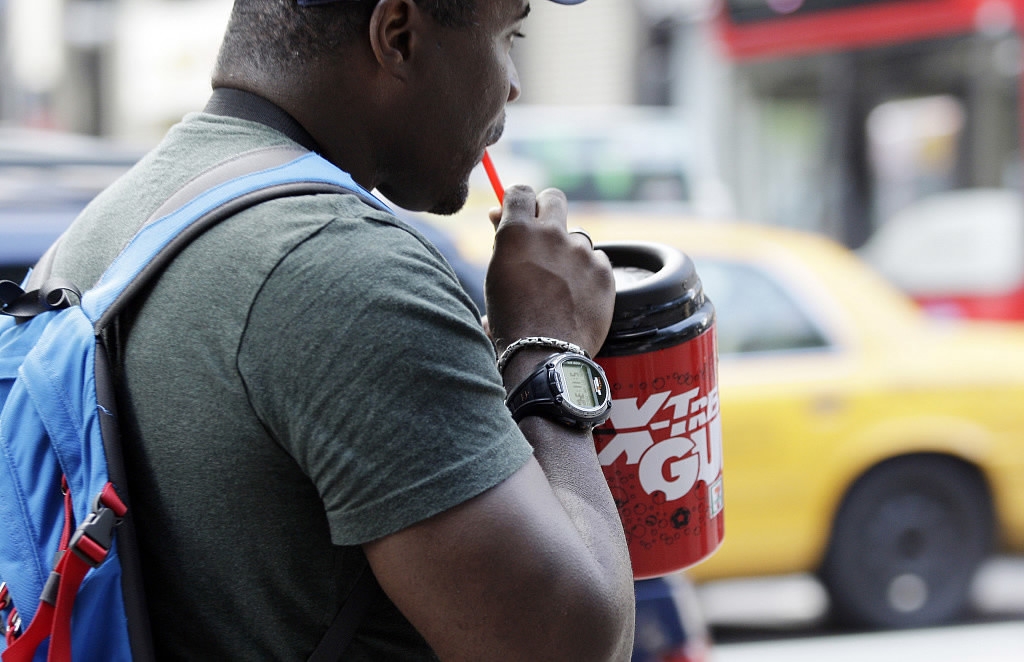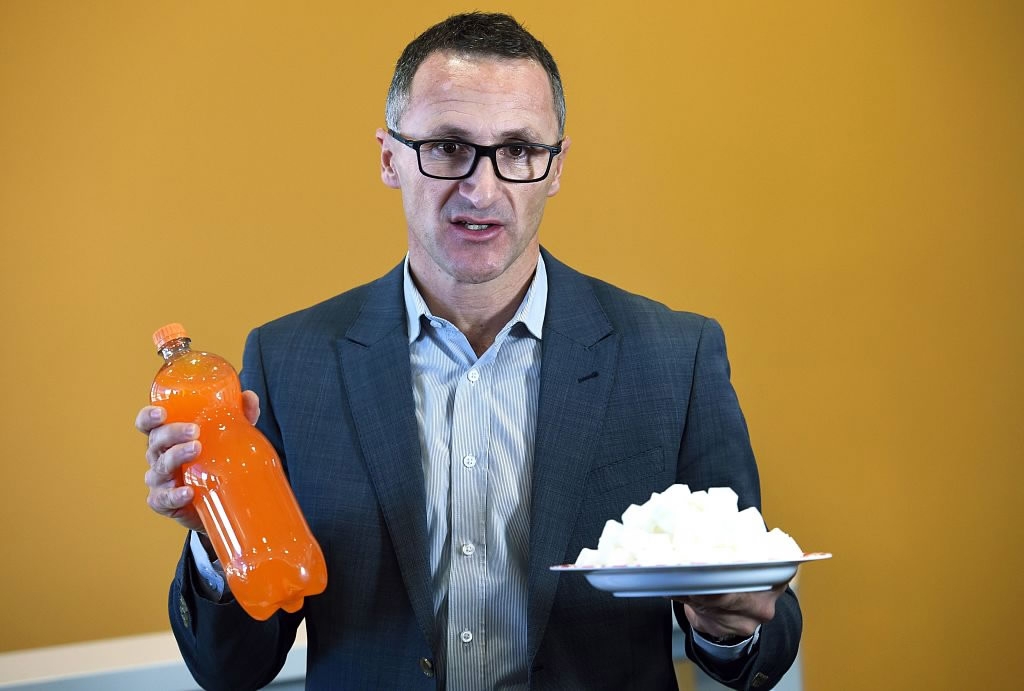
health
19:36, 01-Jan-2018
New review confirms sugary drinks are linked to obesity

Drop the soda. A new report has concluded that the consumption of sugar-sweetened beverages (SSBs) is associated with obesity.
According to World Health Organization (WHO) estimates, worldwide obesity has nearly tripled since 1975. In 2016, more than 1.9 billion adults, aged 18 and older, were overweight. Of this number, over 650 million were obese.
The conclusion comes from a systematic review of 30 studies published between 2013 and 2015, and was recently published in a journal of the European European Association for the Study of Obesity (EASO).

File: A protester holds a large drink at the "Million Big Gulp March" protest to express opposition to former New York City Mayor Michael R. Bloomberg's proposal to prohibit licensed food service establishments from using containers larger than 16 ounces to serve high-calorie drinks at City Hall Park in New York City, US, July 9, 2012. /VCG Photo
File: A protester holds a large drink at the "Million Big Gulp March" protest to express opposition to former New York City Mayor Michael R. Bloomberg's proposal to prohibit licensed food service establishments from using containers larger than 16 ounces to serve high-calorie drinks at City Hall Park in New York City, US, July 9, 2012. /VCG Photo
"The evidence base linking SSBs with obesity and overweight in children and adults has grown substantially in the past 3 years," EASO President-elect Dr. Nathalie Farpour-Lambert was quoted as saying in a news release.
"We were able to include 30 new studies not sponsored by the industry in this review, an average of 10 per year. This compares with a previous review that included 32 studies across the period 1990-2012."
This recent evidence suggests that SSB consumption is positively associated with obesity in children. According to WHO, over 340 million children and adolescents aged 5-19 were overweight or obese in 2016.
"By combining the already published evidence with this new research, we conclude something that in many ways should already be obvious: Public health policies should aim to reduce the consumption of SSBs and encourage healthy alternatives such as water," said Dr. Farpour-Lambert. "Yet to date, actions to reduce SSB consumption in many countries are limited or non-existent."

File: Australian Greens leader Richard Di Natale holds up a soft drink and a plate of sugar cubes as the party announces it will launch a tax on sugary sweetened beverages if elected in the upcoming general election, in Sydney, June 22, 2016. /VCG Photo
File: Australian Greens leader Richard Di Natale holds up a soft drink and a plate of sugar cubes as the party announces it will launch a tax on sugary sweetened beverages if elected in the upcoming general election, in Sydney, June 22, 2016. /VCG Photo
A total of 244,651 study participants were included in this new systematic review, with participants from across the globe including Europe, the US, Australia, South America, and parts of Asia.
A report from Euromonitor International indicates that to date, 19 countries have so far introduced taxes on food and drinks. More countries hope to join this list, with the target of reducing sugar consumption by 20 percent in accordance with WHO guidelines.
The review suggests that countries that have not already done so should take action to reduce the consumption of the so-called "empty calories" that these drinks contain.
Source(s): Xinhua News Agency

SITEMAP
Copyright © 2018 CGTN. Beijing ICP prepared NO.16065310-3
Copyright © 2018 CGTN. Beijing ICP prepared NO.16065310-3